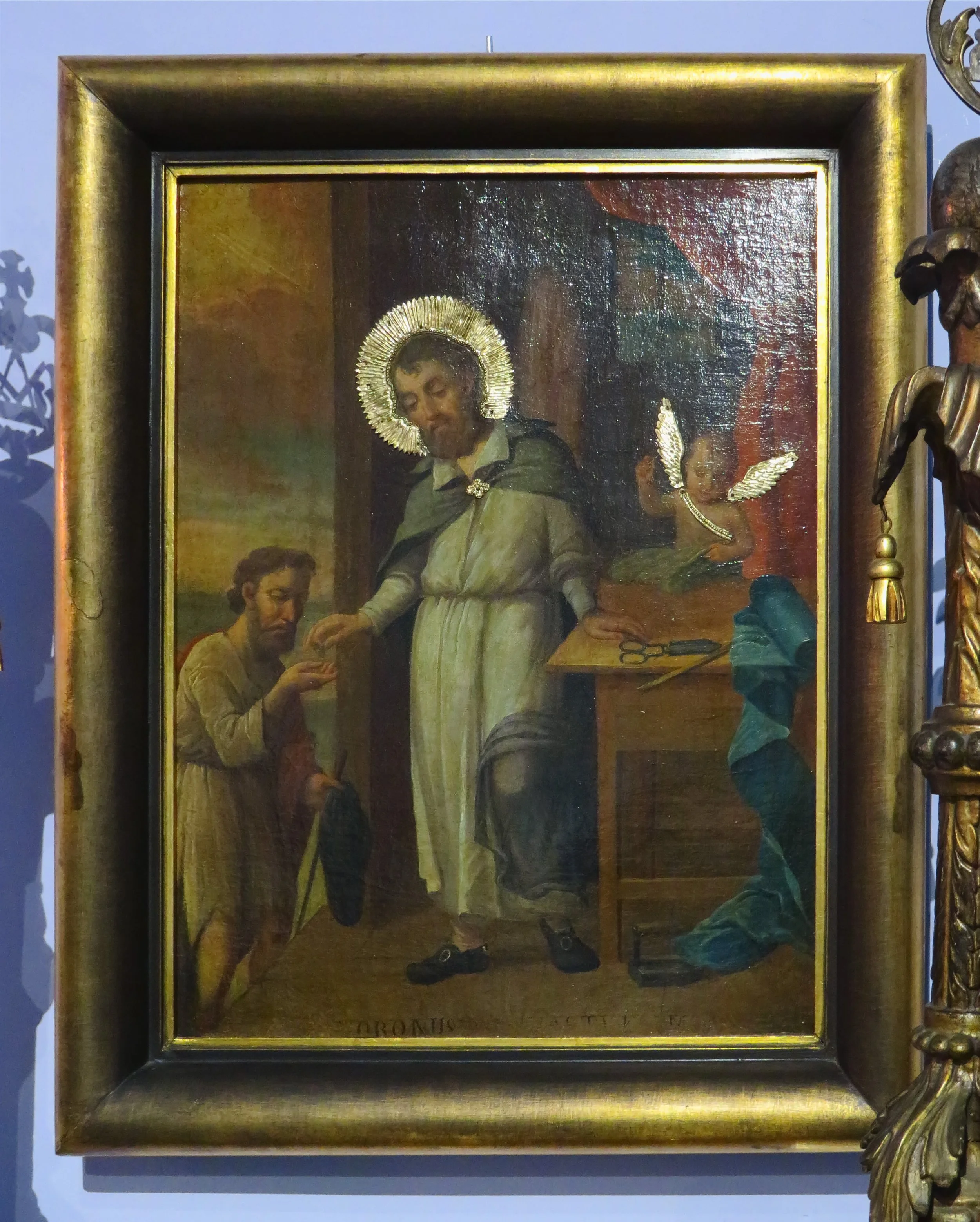Following the Steps of a Good Man: Tips on Living a Fruitful Life as an Entrepreneur, From the Saint Who Did It Best
“So much must I live for others, that I am a stranger to myself” (Pope Innocent III, who canonized St. Homobonus).
St. Homobonus of Cremona is the patron saint of entrepreneurs. Unlike many of the saints we hear about, this man was a layman in every sense of the word. Born in Italy to a wealthy family, like many entrepreneurs, his was a family business that he inherited from his father. Through the process of innovation, he recreated this humble yet profitable tailoring business into something bigger, bolder, and fresher once he took the reins from his father.
St. Homobonus’ name, literally translated, means “good man.” What can we learn from this entrepreneur who struggled throughout his entrepreneurial journey? From his unwavering commitment to God, his clarity of thought when it came to the discipline of business, and his perspective on talents and abilities, there is much to be learned from this good man and several disciplines business owners can adapt in our own entrepreneurial journey:
Reciprocity as a Way of Doing Business
As entrepreneurs, too often, corporate giving is an afterthought we consider on December 31. But how different would our faith and our business lives be if we saw business as a calling to provide for the less fortunate or people in need of our gifts, our friendship, and our mentorship? What if we saw our work as a gift from God to be given to others? What if cause-related giving were the reason for our work, instead of an option for greater awareness and profits or lower taxes? The parable of the talents (Matthew 25:14-30) reminds us that we are called to give God back the gifts he’s given us—and then are rewarded accordingly.
After his wealthy parents died, St. Homobonus inherited a rich sum of money. However, unlike many of his fellow entrepreneurs, Homobonus saw his inheritance as a way to give far more than what his church asked or required of him. He often sought out the poor in their home, not to criticize them but to bless them with financial support, food, and clothing while exhorting them tenderly to penance and a holy life. In fact, he seemed to set no limit to his alms, knowing that the Lord would give back to him one hundredfold for his generosity and care for people in need. His alms did, indeed, serve as a blessing, as each act of kindness in fact did not make him less wealthy. Instead, his wealth grew.
Servant Leadership
How often have we stepped back and considered whether the path we are on as entrepreneurs and business owners is a holy assignment? We can take a page from Homobonus by knowing that he, too, saw business as another way to love God. Homobonus used his influence, his knowledge, and his financial success as a way to serve God as a channel of his grace.
St. Homobonus opened his home to everyone and shared his coffers to every person in need. He worked tirelessly to rectify any differences among government, business, and the citizens of his city, and he devoted himself to the concept of corporal and spiritual works of mercy. He loved his Catholic faith and used it to make every decision. Jesus reminds us to do this: “You shall love the Lord, your God, with all your heart, with all your soul, and with all your mind. This is the greatest and the first commandment. The second is like it: You shall love your neighbor as yourself. The whole law and the prophets depend on these two commandments” (Matthew 22:37-39).
God First and Always
Running a business has inherent daily pressures and temptations, but paramount in the eyes of God is that we run our business in a virtuous manner. It is in our daily work that we demonstrate what walking in faith looks like. St. Homobonus knew that temptation could quickly lead to corruption. Every day, we struggle with pride, greed … even using the Lord’s name in vain.
At the center of St. Homobonus’ life was his faith. Daily reception of the Eucharist and frequent prayer were central to his family and work life. In fact, this wealthy saint died at the altar, looking up toward the crucifix. He can, therefore, remind all of us, in the busyness of our daily work, that prioritizing God demands the Eucharist and that in the Eucharist, we are empowered to live more fully integrated lives, bringing God to our business and our business to God (Matthew 7:13-14).
A Prayer for Business Leaders:
Beloved and Charitable St. Homobonus, your honesty and goodwill served your community and the Lord well. Help me follow your example and not give in to temptations of greed and easy shortcuts that wound others. I ask for guidance in my work, so that I may prosper by choosing virtue over avarice. Amen.
Sources:
https://www.saintjohninstitute.org/st-homobonus/
https://catholicsaints.info/saint-homobonus-of-cremona/
https://www.catholic.org/saints/saint.php?saint_id=189
Prayer: https://www.attollousa.com/feast-day-saint-homobonus-patron-saint-business-owners/
Since founding RMD Advertising in 1992, Sue Reninger as been responsible for the complete strategy and direction of RMD’s Columbus-based flagship office. She has also co-founded Wagons Ho Ho Ho, a 501c3 charity that serves children in dire need with HOPE. Sue has been honored with the prestigious NAWBO Visionary Award and Marketer of the Year from the American Marketing Association.

